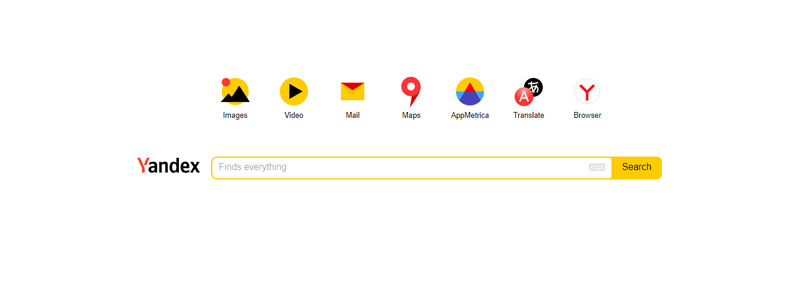Finding information now does not require effort: libraries, archives, and documentaries fade into the background. It is much easier to ask Google – it is he who is the leader in the virtual space of search engines.
Statistics from Statcaunter.com states that Google.com is the most popular search engine on every continent of the planet. All remaining systems, including Google Territory variants, average less than 20% of queries:
- In Africa, Google.com handles 92.68% of all queries.
- In Asia – 82.31%.
- In Europe – 71.65%.
- In North America – 84.29%.
- In South America – 88.93%.
- In Oceania – 64.24%.
The numbers do not indicate a decrease in Google’s popularity in Australia and European countries – it is just that local search engine domains (Australian, German, French) are used more often in their respective countries.
Users trust other search engines as well: Bing, Yandex, Yahoo!, DuckDuckGo, Baidu. However, their popularity is limited by user countries and does not exceed 4-5%. For example, Yandex is at the top of the list for Asia and Eastern Europe. In contrast, Bing and Yahoo! in Asia are unpopular, but they are well known in the United States and Western Europe.
The criteria for choosing a search engine are logical: the relevance of the results, the quality of the proposed content, and a user-friendly interface. Although the leader is obvious when considering these criteria, its competitors are not losing ground.
Search Engines other than Google: Top 10 in the World
Google has outgrown the level of a conventional search engine. Now it is a whole complex of multidirectional programs. Search, maps, calls, video communication, mail client, translator, document editor – an extensive set of functions determines the user’s choice in favor of the corporation.
But there is no perfect solution. Along with useful features, the user receives a system for tracking their requests and transitions. Another disadvantage is the abundance of advertising sites that damages a user’s objectivity. Do the cons look harmless?
Google, while capturing the lion’s share of the market, is not a monopoly. Alternative search engines perform the same functions, sometimes with minimal differences. But at the same time, they show completely different results. This is understandable: their search bots crawl significantly fewer sites.
We tested several search engines and discovered how their proposed results differ. It was close to lunchtime, so the same query was used – “how to cook pasta bolognese.” The starting point for comparison was the Google search page.
Bing

This search engine was founded by Microsoft back in 1998 (since 2020 – Microsoft Bing) and is installed by default on Microsoft products. It is considered the second most popular in Anglophone countries and most of the functions are the same as Google:
- Service for the placement and management of advertising.
- Categories for information on demand (sites, pictures, videos).
- Interpreter.
A separate advantage includes voice dialing. Finally, a convenient analog of “Bookmarks” is called “My Collections” and it is placed in the search engine itself rather than the Internet browser.
For the query “how to cook pasta bolognese,” Bing produces only about 4 million results rather than the 50 million offered by Google. However, it puts more information on the home page – the placement of articles and videos on the topic is well thought out. In Google, the BBC site is in the lead in the search list – several of its web pages are displayed at the top at once. Consequently, other results are less likely to land on the first page. At the same time, at the top of the Bing list, data from Wikipedia about the meaning and origin of the word bolognese is displayed, not recipes. Another similarity to the mega-competitor is that Bing also tracks its users.
The main difference of this search engine is its integration into the Microsoft Office package. This feature allows you to search for the information you need without leaving the application.
Yahoo Search

Here is another strong player in the world of English-language search engines. Yahoo! offers more relevant results than Google. However, they are not conveniently organized. For example, you will not get a block with popular videos – even pictures will appear at the bottom of the page. Another difference is that Google promotes reliable, well-known sites at the top, unlike Yahoo. This is one of the reasons why new businesses rarely choose Yahoo Search: it’s harder to land on the first page.
Let’s go back to our experiment. When we searched for “how to cook pasta bolognese,” we got a whopping 63 million results. Once again, the top two positions are occupied by BBC subsidiaries (including bbcgoodfood.com). After them – selling sites for cooking shows or online grocery stores (foodnetwork.com). They are relevant to the query but only offer their products. Additionally, it’s completely inconvenient that the videos are included in the general list of results – there is no preview and display of the video.
The compelling argument for Yahoo is its user-friendly home page. It contains various search functions and categories (news, weather, finance, etc.). However, the results pages look standard and do not differ much from Google.
Baidu

The PRC search engine is focused exclusively on the interests of the representatives of its people. Therefore, it offers “full immersion” – the list of resources and add-ons has up to 50 items including antivirus protection and an encyclopedia! Unfortunately, Baidu search sites must be shown in Chinese otherwise, JavaScript may not display correctly.
It is not possible to change the language of the web service. The search result message we received of “not in hieroglyphs” leaves much to be desired – our “how to cook pasta bolognese” lunch was not prepared. In the SERP were web pages from 2016 and even 2010 (v.youku.com and theawl.com). Not everything is going smoothly with the relevance of the results either: a website with phonetic transcription features was found in the top ten. There are no photos and video selections – possibly due to the English language of the request.
Although the most popular search engine in the Celestial Empire does not need to compete with Google (the government censorship regularly blocks it), it mirrors it in many ways. The modest interface and versatility increase the similarity.
Baidu’s rules are simple but tough. For example, if the site is not optimized for the mobile version, the system will adapt the site on its own – and you are guaranteed to lose some of the content.
DuckDuckGo

Privacy advocates choose DuckDuckGo because its algorithms are opposite to Google’s policy. Furthermore, the creators of DuckDuckGo declare that they do not collect personal data from users and do not track their IP addresses.
Shall we cook lunch with the Duck? The query “how to cook pasta bolognese” produces results that differ from other search engines. The usual bbcgoodfood.com is at the bottom of the top ten. In the first place – a block of recipes from the Yummly website, web resources from foodnetwork.com and allrecipes.com, as well as a block of videos on YouTube. The number of found pages for the query does not show, but the relevance of the results is high. The downside is that there is no geolocation: both American and British sites are at the top. This is because they are loaded as you scroll down the search page, a common feature for search engines.
To summarize, keeping private information is a major plus. Moreover, the search engine is now blocking competitor’s attempts to collect user data. Yes, the requests are saved in the browser history, but the developers claim not to go to Google. Also, you can always turn on Safe Search to avoid inappropriate content.
Yandex

A formidable competitor to Google in the small Russian-speaking segment of the Internet. Yandex is focused on indigenous interests and has long gone beyond the classical search engine. The company offers a range of opportunities – from financial management to marketplace offerings, pizza delivery, and taxi services. The search engine itself is similar to Google (who would doubt it!) in several ways including the user’s ability to customize geolocation, how pages are processed, and even the interface. However, Yandex has implemented quality marks for web pages – with their help, the user selects verified sites. In addition, you can evaluate the usefulness of the content and see other indexes for web pages.
In the matter of collecting information about the user, Yandex is not much better than Google. Confidentiality is absent here as a concept. However, the search engine is more flexible and adapts to the needs of the audience.
What about our pasta? At the request “how to cook pasta bolognese,” the list is displayed and adapted based on geolocation data. The BBC site again leads, followed by a video block. The culinary blogs and recipe web pages are featured well below. Yandex also displays results from WikiHow and the Russian-language site kylinariya.ru on the first page. The block of suggested queries on the topic is formed in the query language and, in general, is relevant.
Ask

The Ask.com search engine was conceived as a service for answering questions. It ignores forums (who knows what fakes are published there?) and offers only informational sites. It produces relevant results in many different languages. In addition to the usual keyword search, the system even interacted with synonyms! Now the search engine is used very little.
When we enter our favorite query, “how to cook pasta bolognese,” we get an unexpected result. The first page in the search results is a review on airbnb.com, which is unlikely to help satiate us. Another link leads to the main page of the infusionmax.EU website, where you can buy … professional kitchen equipment. As a result, the required recipe can be found by clicking on the 8th link. We will not stay hungry for long!
At the top, links to other results include: activebeat.com (moreover, the word “bolognese” is not used there) and another search service, info.com. Please note that the request was made in the “native” language of the search engine.
A few more nuances: the Ask start page offers news in Entertainment, Travel, and Culture. For authorized users, the service provides daily crosswords, puzzles, and other mind games.
Naver

Naver is the most famous South Korean search engine, developed in 1999. However, its interface is associated more with Yahoo than with Google due to the additional functions provided.
The site is well adapted to work with other languages - this is noticeable in the search results. But we are still hungry – “how to cook pasta bolognese”? For the entered query, the search engine offers several blocks of information: step-by-step recipes with pictures, videos, news on the topic, and analysis of each query word. Sites woolworths.com, sbs.com, stylist.co, Pinterest, and a block with recipes from culinary blogs (primarily Korean) got to the top.
Diverse and relevant search results are based on reliable sources; this speaks to the merits of the search engine. In the news section, Naver even suggests reading The New York Times. The service is constantly being improved and improved. And often ahead of global systems – universal search appeared here earlier than Google.
AOL

The peak of popularity of the media company AOL (USA) came in the late 1990s. Further – a sad story: after several hacker attacks, a large-scale leak of user data occurred. Accordingly, trust in AOL has “leaked.” In the reviews for the services of the service – dissatisfaction with the work of the mail and the company’s pricing policy as a whole.
A search engine with its video hosting and the ability to secure search does not lose its position. AOL specializes in finding images, videos, and websites that have a minimalistic interface. The block of similar queries is located on the right and not at the bottom, like in Google.
The search scope in AOL is limited: for the gastronomic test query “how to cook pasta bolognese” – 3 million results (remember: Google – more than 53 million). At the same time, AOL structures the search results peculiarly: the site with the most visitors comes first. The search engine also uses the results of Yahoo Search and YouTube, ranking them by popularity.
The system focuses on reliable information sites but does not fully cover possible outcomes.
Seznam

Sezam is a Czech Internet resource, which occupies a quarter of the national market. In addition to searching through web pages, pictures, and videos, it offers search by organizations, products, and maps. The downside is targeting the Czech audience. For a resident of another country, the results will not be relevant enough.
When searching for a bolognese pasta recipe, the system offers information sites and products from online stores—moreover, the old search results (for 2015). Although our search query is in English, Seznam also returns answers in Czech. The web portal is ranked first by the familiar bbc.com. The fourth is the Czech catandcook. CZ. The rest of the results are culinary vlogs and Pinterest.com. The system does not indicate the number of available results. Videos do not have previews and look like regular websites.
Among the valuable functions – a dictionary for analyzing the text of the request, information about real estate, own news, and television. However, it is the focus on local interests that makes Seznam indispensable for its target audience.
Search Encrypt

The secret of the Search Encrypt network is privacy. The search engine does not store search/user data and uses SSL encryption. Search Encrypt searches images and videos. At the same time, the waiting time for a response sometimes reaches 30 seconds. Searching on web pages works even worse – the time for the delivery of results increases.
In response to our query “how to cook pasta bolognese,” the search engine displayed companies producing various Italian sauces as the top sites. The recipe was discovered in the third link. What’s interesting: next to the field for entering a query are links to the direct competitors of the search engine. Like, you didn’t find it with us – turn to a more professional search engine such as Yahoo, Bing or Google (an interesting tactic from the developers). Search Encrypt pulls results from a network of search partners then gives you the information it finds.
Given the emphasis on data protection, the search engine is more comparable to DuckDuckGo than to Google. However, in this case, the service losses are noticeable – sometimes, the results for various queries are unavailable.
More about the DuckDuckGo search engine
World search engines are increasingly being accused (and rightfully so!) of violating confidentiality. Not only our names, but also medical, financial, and location data – all of this can be found from search queries.
The world is changing – it’s natural. Personalized advertising is better than being overwhelmed with the Niagara Falls of information about every relevant and irrelevant industry and sphere of human activity. However, I don’t want to share even a small part of my personality with corporations. This is the main reason for the emergence of search engines that maintain anonymity. The most famous of these is DuckDuckGo.
This Internet product of a small company is already on the heels of many corporations. The search engine was founded in 2008 and had several features that make it more and more popular:
- The developers ensure that they are not tracking users – there are enough keywords to display ads.
- DuckDuckGo blocks hidden Google trackers – it’s part of the web service’s official policy.
- Search engine results are more objective and do not depend on your preferences.
- Feedback – contact with developers – is not one of the main advantages, but it’s an offered function, and it’s always nice to be heard.
- The function “Bangs” can go directly to the desired site, bypassing the search page.
- Minimum amount of advertisements.
The creators of DuckDuckGo are very clear about their goals: search + preservation of private user information. Visitors can decide for themselves what data to share with the world and who it is shared with – not an option found with many other search engines.
DuckDuckGo has its web crawler and partners from other search engines – the results are quite extensive. Among the downsides is that the web service is not always effective in finding accurate facts and current events.
Google search alternatives from Ahrefs
As stated on the site, Ahrefs is an SEO toolkit with free tutorials. With the help of the company’s products, you can analyze keywords, search results and perform an SEO audit of a website. All these actions are aimed at increasing the amount of traffic.
But in 2019, the head of the Singapore company Ahrefs, Dmitry Gerasimenko, announced work on his search engine. Unfortunately, due to the pandemic, the release of the project had to be postponed. In 2021, the company returned to work on it again. According to preliminary information, an anonymous search engine will be more objective and less materialistic than – guess who?
Ahrefs’ database is large enough. The company’s founder clarifies that the digital search bot is the second largest globally in terms of Internet activity. It indexes 30 million new pages per day. Since the system was planned as an alternative to Google, the developers are betting on two key points:
- Confidentiality. We know the lack of it is an unpleasant side of Google, but we prefer to close our eyes.
- Support for creators. Non-profit website builders are often forced to raise funds to keep the site up and to run. Ahrefs offers help for quality web projects.
Useful information sites will receive 90% of Ahrefs’ revenue. This will be an additional incentive to publish quality content and reduce the number of ads on web pages.
Conclusion
As you can see, there is life outside of Google. But choosing a search engine involves a careful study of all the positive and negative characteristics. Our advice is to be guided not only by a pleasant interface but also by security issues. In addition, it is worth considering the region in which you are located: perhaps there is a local solution for it (like Naver, Yandex, Baidu).
Using a different search engine? Tell us about it in the comments – perhaps your experience will be useful to the readers.
